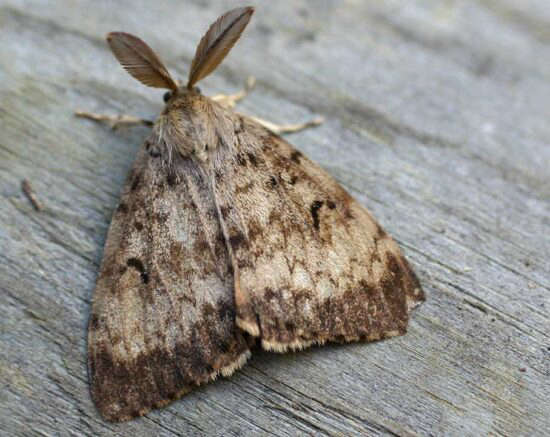
The Ministry of Forests will conduct aerial-spray treatments on Vancouver Island in the spring to fight against spongy moths and minimize the risk they pose to forests, farms, orchards, and trees.
Specifically, crews will be treating in Greater Victoria, Qualicum Beach, Nanaimo, Cowichan Bay, North Saanich, and Salt Spring Island.
Invasive spongy moth caterpillars (also known as Lymantria moths and formerly known as gypsy moths) feed on tree leaves.
In recent years, they have defoliated sections of forests and residential areas in Ontario and the eastern United States.
The Ministry says untreated spongy moths risk spreading to other areas of B.C. and are a threat to urban forests and farms.
Crews will be using an insecticide (Foray 48B) common in organic farming, and the active ingredient is naturally present in urban, agricultural and forest soils throughout the province.
It only affects the stomachs of moth and butterfly caterpillars and is specific to their digestive systems.
The treatment has been approved for the control of spongy moth larvae in Canada since 1961.
For more information, visit Government of British Columbia.
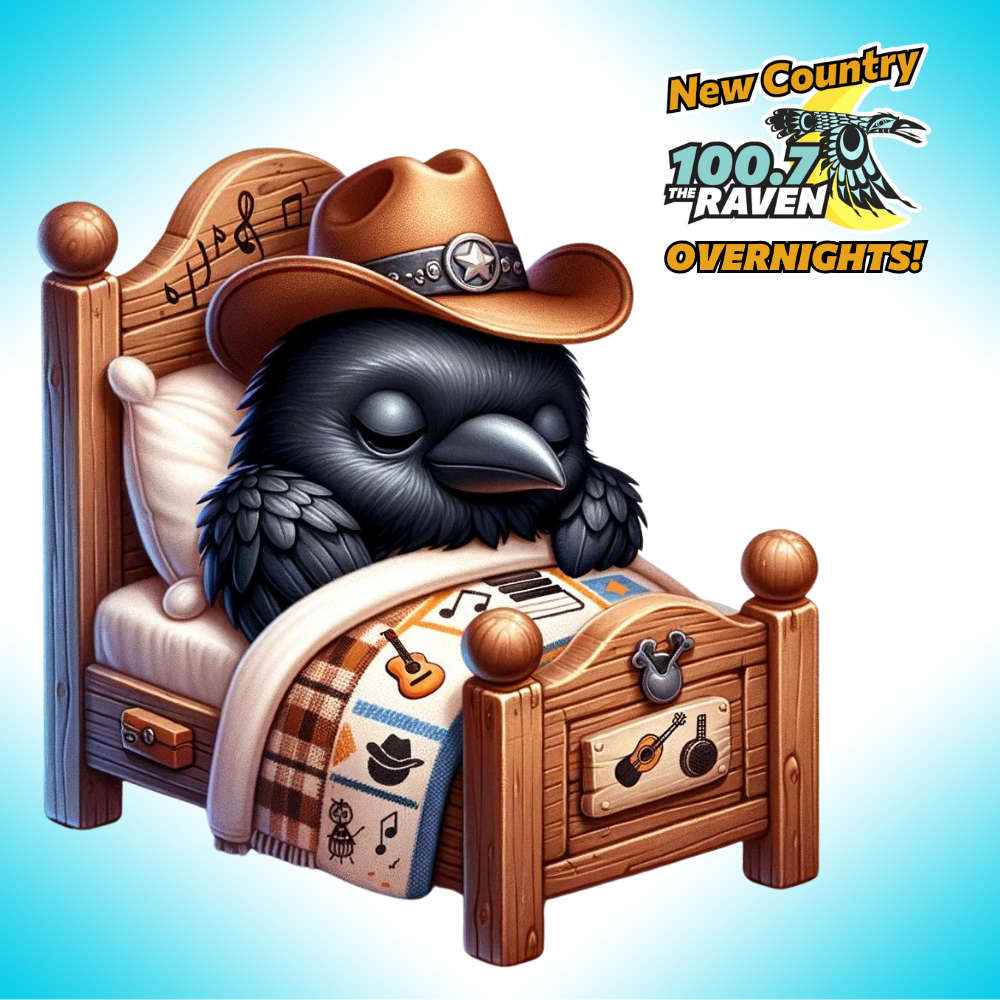
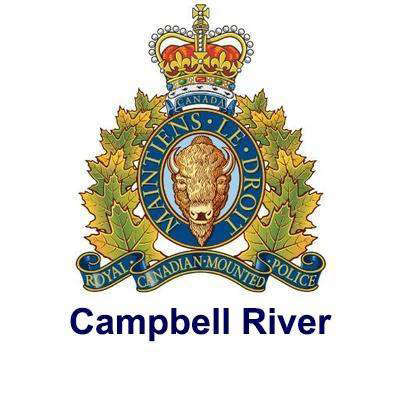 Drug Trafficking Investigation Leads To Drug Seizure In Campbell River
Drug Trafficking Investigation Leads To Drug Seizure In Campbell River
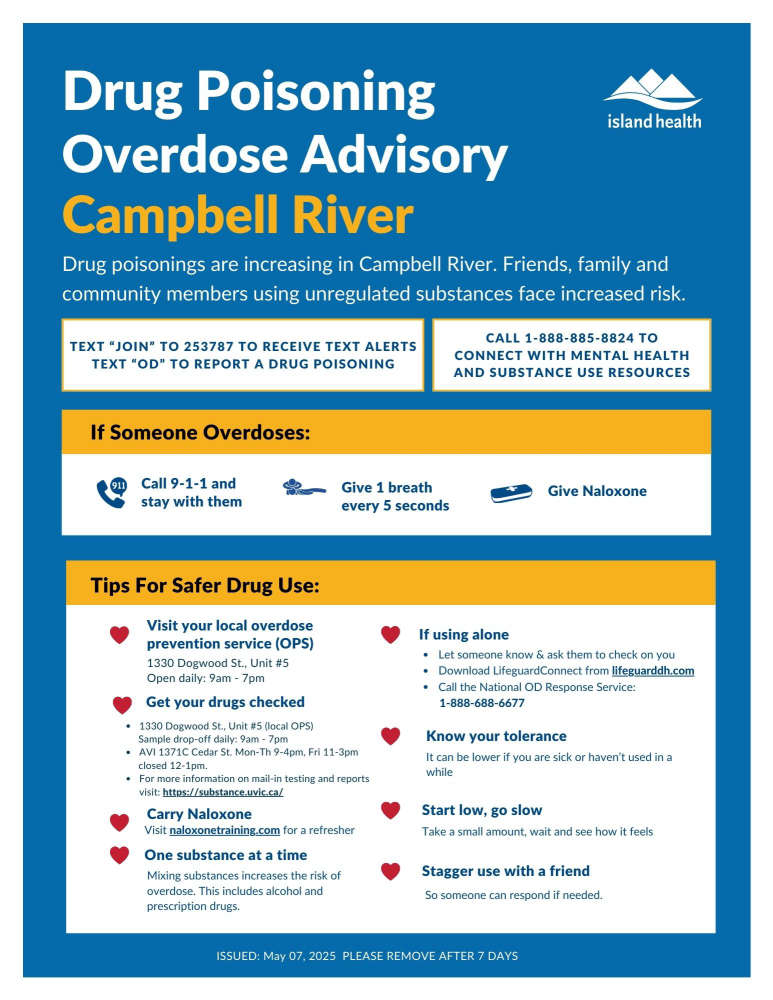 Drug Poisoning Advisory In Comox Valley
Drug Poisoning Advisory In Comox Valley
 City Of Courtenay Celebrating Public Works Week This Month
City Of Courtenay Celebrating Public Works Week This Month
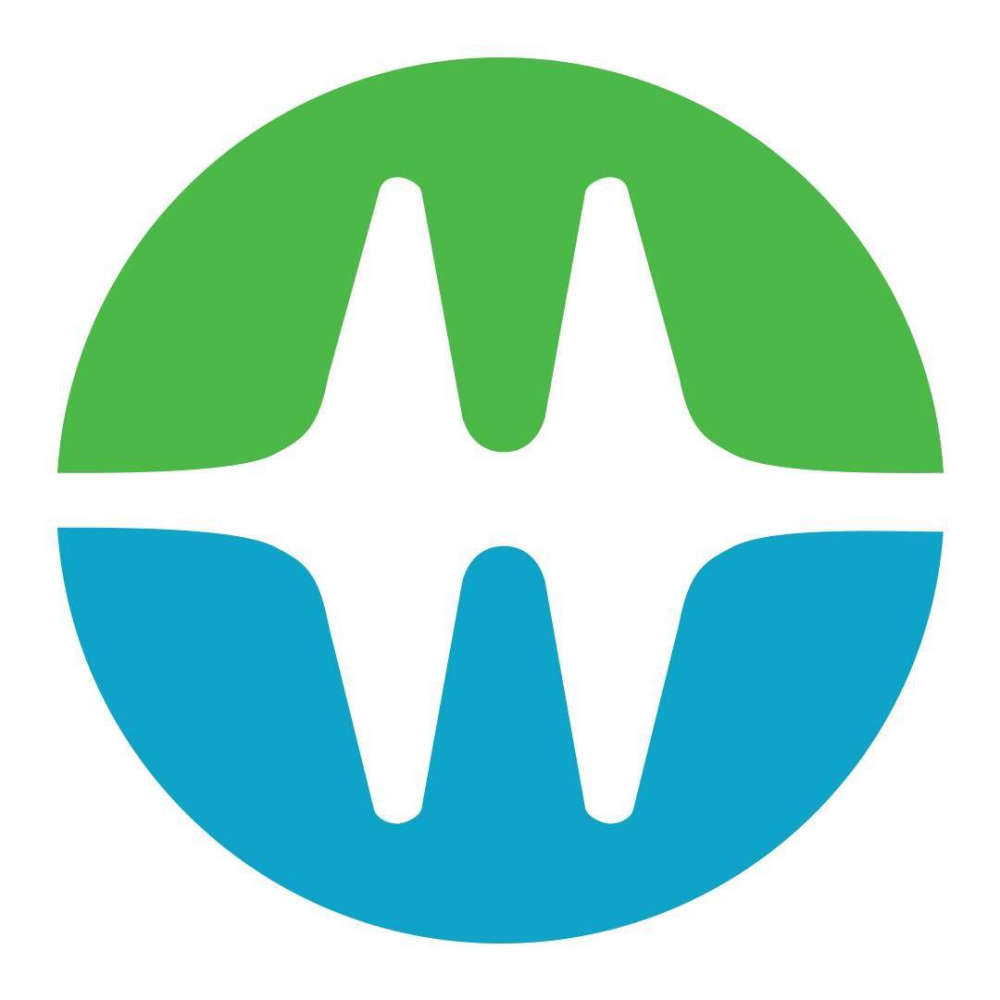 BC Hydro Preparing To Test Public Warning System
BC Hydro Preparing To Test Public Warning System
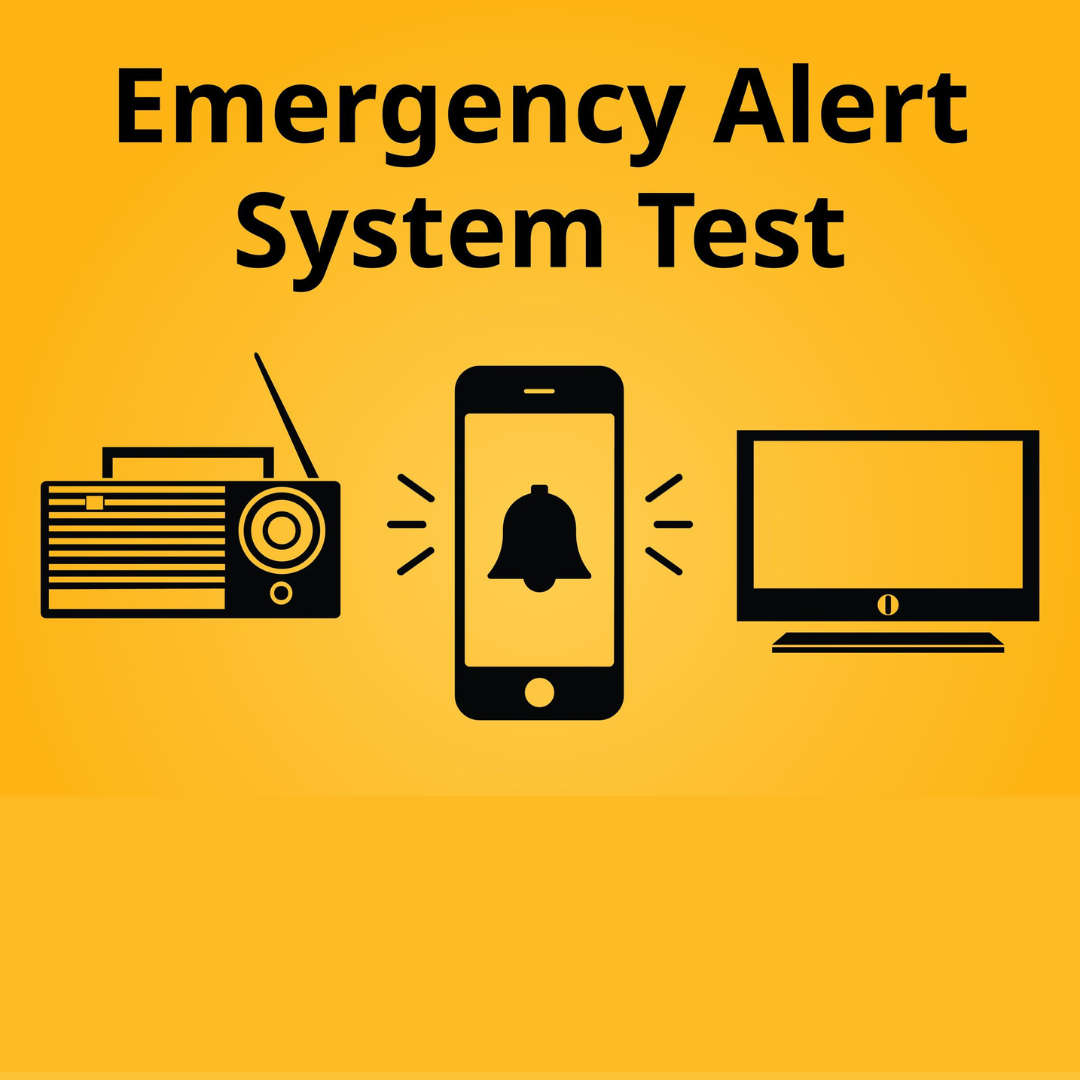 Emergency Alert Test This Afternoon
Emergency Alert Test This Afternoon
